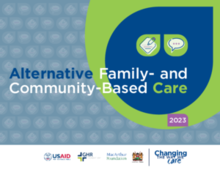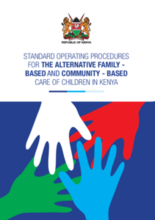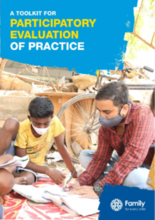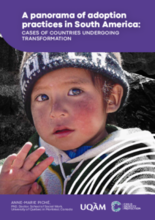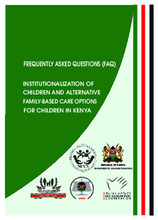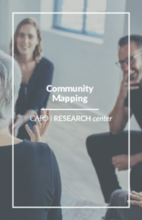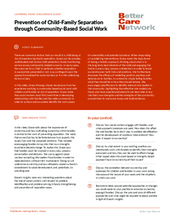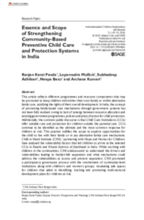Displaying 11 - 20 of 312
This handbook is a summarized, user-friendly version of the operating procedures for alternative family- and community-based care options. It provides an overview of each type of care, key considerations, and the process followed for placement. The handbook aims to provide an easy and quick reference to critical information and “how to” about alternative family- and community-based care placements.
These illustrations from Changing the Way We Care and the Government of Kenya showcase live community engagement sessions on how to develop Kafaalah messages and promote Kafaalah for family-based care.
The Standard Operating Procedures (SOPs) for the Alternative Family-based and Community-based Care of Children in Kenya provide guidance for the comprehensive implementation of the Guidelines for Alternative Family Care for Children in Kenya (2014).
Family for Every Child's new Participatory Evaluation Toolkit places the knowledge and experience of local Civil Society Organisations (CSOs) at its centre. It offers an alternative to traditional evaluation dynamics, by drawing on the strength of local solutions.
This research brought together the testimonies of adoption professionals (national and international) concerned with the situation of abandoned and placed children in five South American countries: Argentina, Bolivia, Chile, Colombia and Peru. The aim of this study is to gain a better understanding of the new realities of adoption, in a context where these countries have chosen to limit or stop their foreign adoption practices.
This booklet emphasizes the importance of family based care for the care of orphaned and vulnerable children (OVC) in Kenya, provides answers to regularly asked questions, and lists current government efforts to support OVC, including the policy and legal frameworks and existing forms of family and community-based care.
This document provides guidance on how to conduct a community mapping, a step in building a system to care for vulnerable children and families.
In this video, Grace Mwangi shares key lessons from her experience working in community-based social work with children and families at risk of separation in Kenya.
This article reflects different programmes and resource components that may be promoted to keep children with either their own family or within alternative family care, satisfying the rights of their overall development.
This article will make a case for investing in families and communities rather than orphanages by putting a spotlight on ECFG member investments in Asia.

